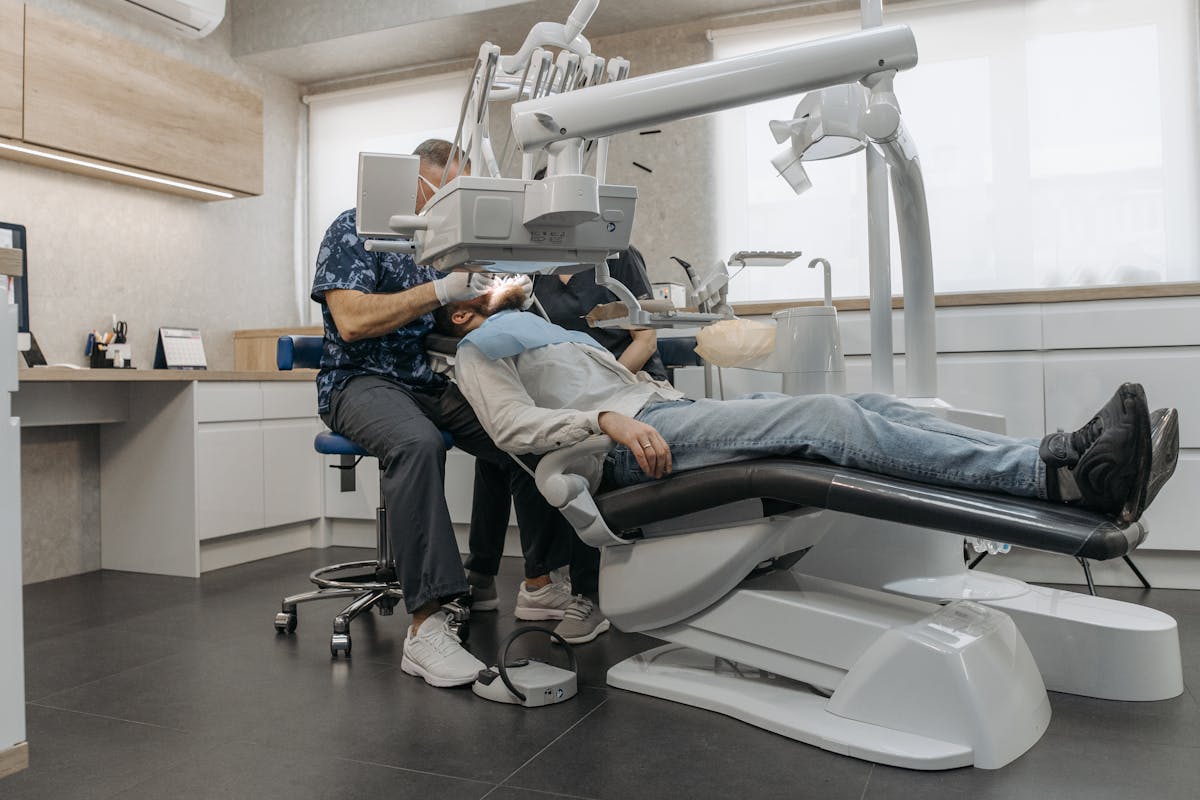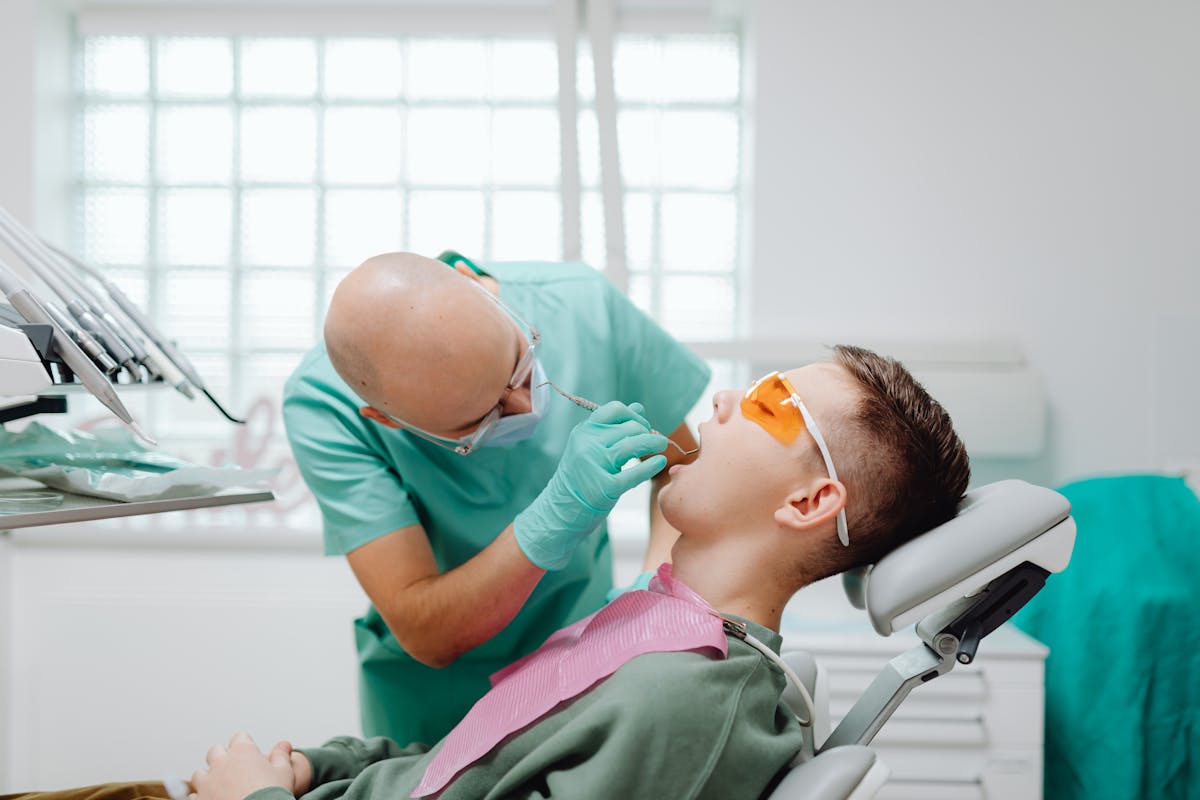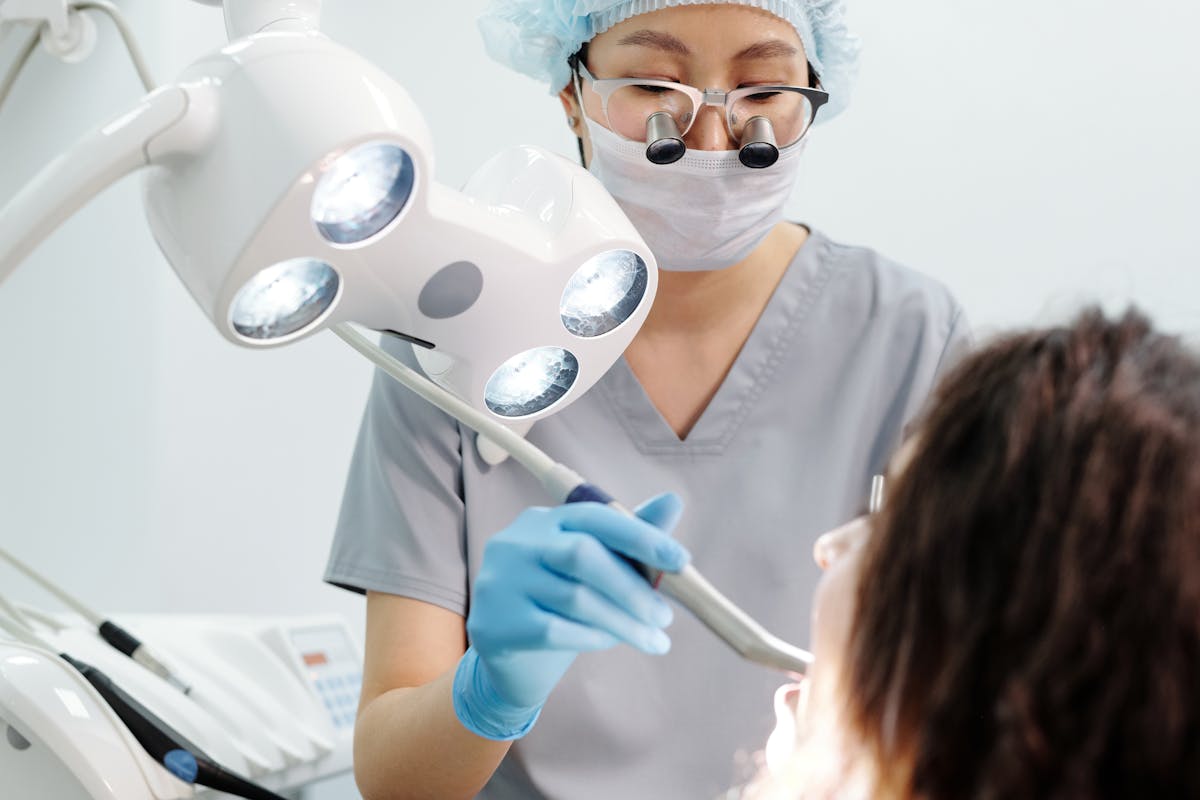Dental Implants and Prostheses St, Graham, TX

Dental implants and prostheses in St. Graham, TX, present an all-encompassing solution for those experiencing tooth loss. Utilizing state-of-the-art materials such as titanium and zirconia, local dental experts focus on durability and aesthetics. The procedure encompasses detailed assessments and precision imaging, ensuring successful osseointegration. With tailored treatments enhancing oral functionality, these options provide significant advantages over traditional dentures. What makes these advancements a preferred choice in St. Graham?
Understanding Dental Implants and Prostheses
Dental implants and prostheses represent significant advancements in restorative dentistry, providing solutions for tooth loss and structural deficiencies. Implant materials, such as titanium and zirconia, play an essential role in the success of these procedures due to their biocompatibility and durability. Titanium is favored for its osseointegration properties, allowing it to bond effectively with bone tissue. Zirconia, an alternative material, offers aesthetic advantages, closely resembling natural tooth coloration. Prosthesis maintenance is vital for the longevity of these dental solutions. Regular professional check-ups, along with proper hygiene practices, guarantee the integrity of both the implant and the prosthetic component. Neglecting maintenance can lead to complications such as peri-implantitis, highlighting the necessity for meticulous care and adherence to dentist-recommended protocols.
Advantages of Dental Implants
Dental implants provide a long-lasting solution for tooth replacement, often surpassing the lifespan of traditional prosthetic options. Their integration with the jawbone offers enhanced stability, which greatly improves oral function by facilitating efficient chewing and speech. Additionally, the durability and functionality of dental implants contribute to their growing preference among patients seeking reliable dental restoration.
Long-Lasting Tooth Replacement
The enduring nature of dental implants makes them a superior choice for long-lasting tooth replacement. Implant longevity is attributed to their integration with the jawbone, a process known as osseointegration, which provides a stable foundation similar to natural tooth roots. This integration minimizes the risk of prosthesis failure, ensuring the implant’s structural integrity over time. Unlike traditional dentures, which require periodic adjustments and may degrade, dental implants exhibit lower maintenance demands. Prosthesis maintenance primarily involves routine dental hygiene practices, comparable to natural teeth care, thereby reducing long-term complications. In addition, the materials used in implants, such as titanium or zirconia, resist wear and corrosion, further enhancing their durability. Consequently, dental implants provide a cost-effective solution by mitigating frequent replacement needs.
Improved Oral Function
While choosing solutions for tooth replacement, one pivotal advantage of dental implants is their ability to greatly enhance oral function. Dental implants integrate directly with the jawbone, mimicking the natural tooth root. This osseointegration process provides a stable foundation that considerably improves chewing efficiency, allowing individuals to consume a diverse range of foods essential for maintaining ideal oral health. Unlike traditional dentures or bridges, implants do not slip or cause discomfort, thereby facilitating more effective mastication. This improvement in chewing efficiency aids in proper digestion and nutrient absorption. In addition, dental implants help preserve jawbone density by preventing bone resorption, a common issue with missing teeth. Consequently, enhanced oral function achieved through implants contributes to overall health and improved quality of life.
Types of Dental Prostheses
Exploring the array of dental prostheses reveals a diverse spectrum of options tailored to restore oral function and aesthetics. Fixed prostheses, such as crowns and bridges, are securely attached to the existing teeth or implants, providing a stable and permanent solution for missing or damaged teeth. These are favored for their durability and ability to mimic natural tooth appearance. In contrast, removable prostheses, including partial and complete dentures, offer flexibility and ease of maintenance. They can be conveniently taken out for cleaning and adjustments, making them suitable for patients with varying oral health conditions. The choice between fixed and removable prostheses involves consideration of the patient’s specific needs, oral health status, and financial constraints, ensuring ideal restoration of dental function.
The Dental Implant Procedure
A well-structured dental implant procedure involves precise planning and execution to guarantee ideal results. This begins with a thorough assessment of the patient’s oral health and bone structure, utilizing imaging technology to confirm accurate placement. Surgical techniques are meticulously chosen based on individual anatomical considerations, optimizing for minimal invasiveness and maximal stability. The selection of implant materials is essential, often favoring biocompatible titanium for its proven durability and integration with bone tissue. During surgery, the implant is strategically positioned into the jawbone, acting as a stable anchor for prosthetic teeth. Postoperative procedures include regular monitoring to verify osseointegration, where the bone fuses with the implant material, thereby providing a solid foundation for the final prosthetic restoration.
Preparing for Your Dental Implant Appointment
Following the completion of a successful dental implant procedure, the preparatory phase for the appointment plays an integral role in ensuring excellent outcomes. A thorough implant consultation checklist is essential for both the patient and the dental professional to address critical factors such as medical history, current medications, and potential contraindications. It establishes clear pre-appointment expectations, including dietary restrictions, cessation of tobacco use, and the necessity for arranging post-procedure transportation.
The checklist serves as a framework for discussing the patient’s oral health goals and any concerns that may influence the treatment plan. By adhering to these preparatory guidelines, patients can contribute to the procedural success and facilitate ideal integration of the implant, thereby enhancing the long-term functionality and aesthetics of the dental prosthesis.
Recovery and Aftercare Tips for Implants
Successful recovery from dental implant surgery greatly depends on meticulous adherence to post-operative care protocols. Key aspects include effective pain management and strict dietary restrictions. Analgesics prescribed by dental professionals should be administered as directed to alleviate discomfort. Monitoring for any adverse reactions is vital. Additionally, dietary adaptations are essential; patients are advised to consume soft foods, avoiding hard or chewy substances to prevent undue stress on the implant site. Hydration should be maintained, but straws must be avoided to reduce suction pressure. Regular follow-ups with dental practitioners guarantee proper healing and enable timely intervention if complications arise. Adherence to these guidelines notably enhances the likelihood of successful osseointegration and minimizes potential post-operative complications.
How Prostheses Enhance Oral Functionality
Prostheses greatly augment oral functionality by restoring essential capabilities such as mastication, speech, and aesthetics. Functional restoration is achieved through advanced prosthetic designs that meticulously replicate natural tooth structures. These designs are engineered to withstand the forces exerted during chewing, enhancing mastication efficiency. Furthermore, prosthetic solutions address articulation challenges by accurately replicating the natural contours of oral anatomy, thereby improving speech clarity. Aesthetically, prostheses are crafted to match the individual’s natural teeth, ensuring seamless integration and restoring confidence in one’s appearance. Precision in prosthetic designs involves selecting materials that offer durability and biocompatibility, reducing the likelihood of adverse reactions. Through these technological advancements, prostheses not only restore physical oral functions but also contribute considerably to psychological well-being.
Comparing Costs: Implants vs. Other Solutions
When evaluating the financial aspects of dental restoration, understanding the cost differences between implants and alternative solutions is essential. Dental implants typically represent a higher initial outlay compared to dentures or bridges, often due to the surgical procedures and materials involved. However, implants may offer long-term value due to their durability and lower maintenance costs. Insurance coverage varies considerably; some policies cover implants partially, while others focus on less expensive solutions like dentures. Patients must scrutinize their insurance plans to assess coverage levels. Financing options, such as payment plans or healthcare credit lines, can alleviate immediate financial burdens, making implants more accessible. Consequently, individuals should weigh upfront costs against longevity and insurance benefits when selecting a dental restoration path.
Choosing the Right Dentist in Graham, TX
Selecting an appropriate dental practitioner in Graham, TX, necessitates a thorough evaluation of their credentials and experience to guarantee competency in performing implant and prosthetic procedures. Additionally, the dentist’s ability to offer personalized treatment options is critical, as it directly influences the suitability and success of the dental interventions tailored to individual patient needs. Carefully evaluating these factors can considerably impact the overall treatment outcome and patient satisfaction.
Credentials and Experience
Choosing the right dentist in Graham, TX for dental implants and prostheses necessitates a detailed evaluation of credentials and experience. Dentist qualifications are paramount, ensuring the practitioner has received appropriate education and training from accredited institutions. Verification of board certification further assures adherence to industry standards. Professional experience is equally critical, reflecting the dentist’s practical skills and proficiency in implantology. A thorough assessment of years in practice, alongside success rates in similar procedures, offers insight into their expertise. Additionally, participation in continuing education highlights commitment to staying abreast of advancements in dental technology and techniques. Evaluating these factors systematically aids in identifying a dentist capable of delivering high-quality care, thereby optimizing the outcomes of dental implants and prostheses.
Personalized Treatment Options
A thorough evaluation of personalized treatment options is vital in identifying the most suitable dentist for dental implants and prostheses in Graham, TX. Patients should seek dental professionals who offer customized solutions that address individual anatomical and health considerations.
These tailored approaches guarantee that the dental implants or prostheses not only fit perfectly but also function effectively, contributing to overall oral health. Dentists employing advanced diagnostic tools provide extensive assessments, enabling precise customization of treatment plans.
Evaluating the dentist’s commitment to employing state-of-the-art technology and materials is significant in predicting treatment success. Additionally, transparent communication regarding patient expectations and post-operative care is paramount. Such factors collectively guarantee that the chosen dentist aligns with the patient’s specific needs for ideal oral rehabilitation.


We're here to help! Call Us Today!
At Twelve Oaks Dental Care, we provide quality family, general, and cosmetic dentistry in a welcoming environment. Our team focuses on personalized care to help every patient feel comfortable and confident in their smile.
